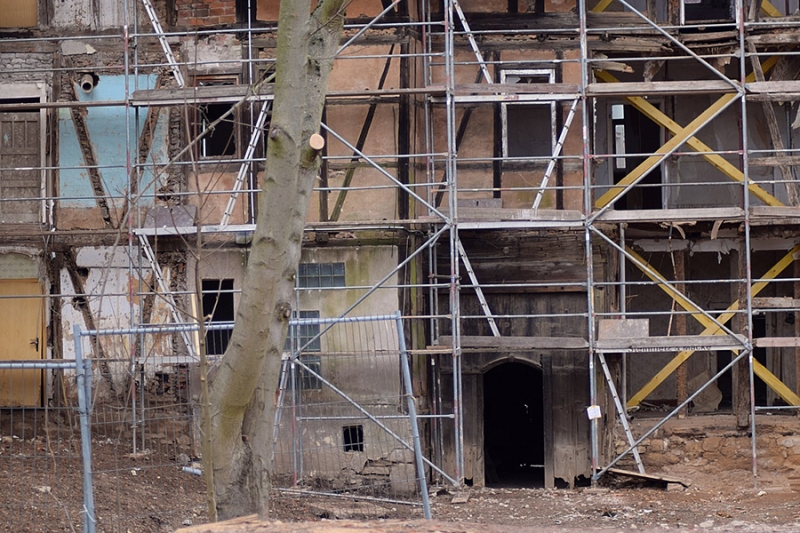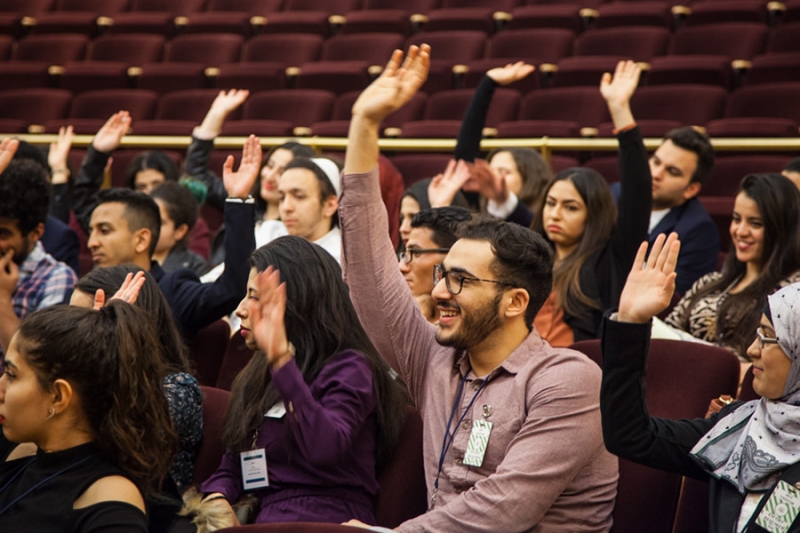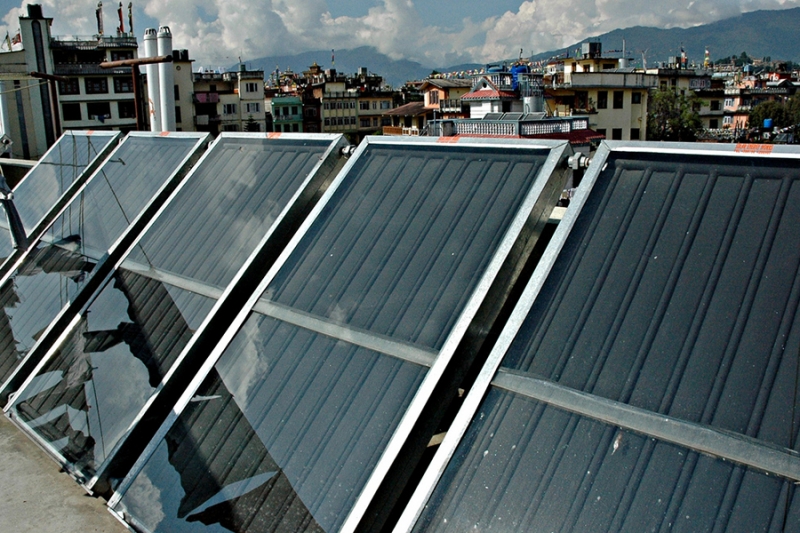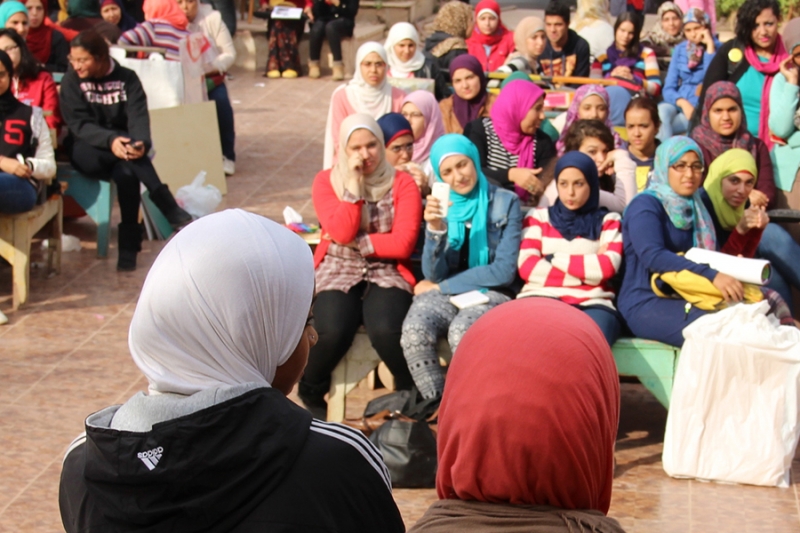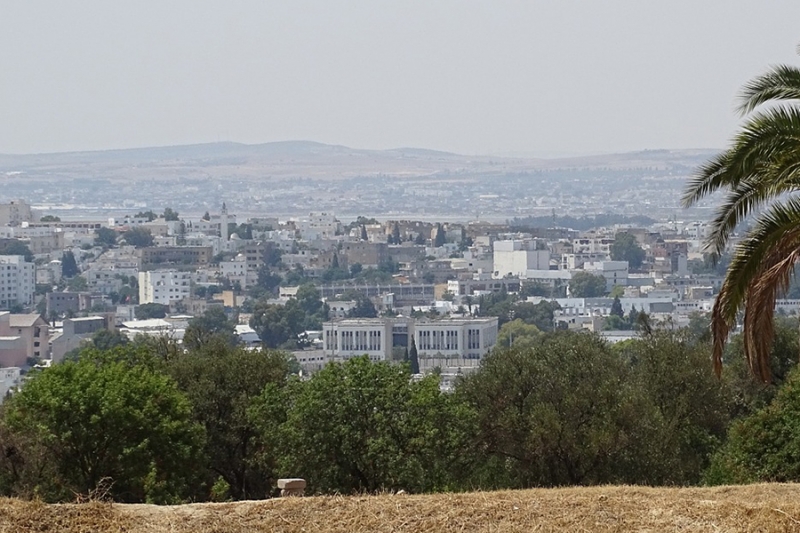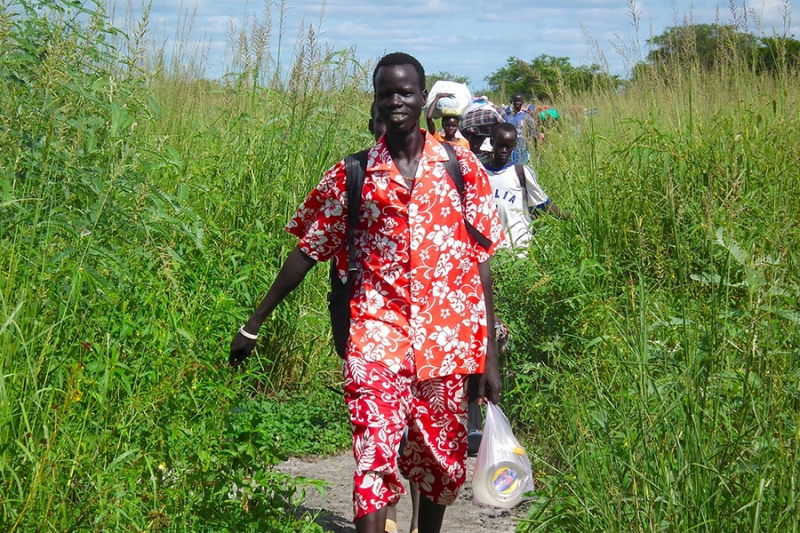The solution seeks to promote energy efficiency (EE) and substantially reduce energy consumption in the residential sector through the Mandatory household equipment energy labeling system and Minimum Energy Performance Standards (MEPS) schemes. Tunisia adopted energy labeling and minimum energy efficiency standards regulations for refrigerators in 2004 and has recently implemented standards and labeling programme for household appliances and other energy using equipment. It is a result of long-term efforts of l`Agence Nationale pour la Maitrise de l`Energie (ANME with support of the Global Environmental Facility (GEF).
The programme includes the following elements:
- Showcasing the applicability and success of green projects and ventures
- Consumer research used to design the Tunisian energy label;
- Establishment and accreditation of national test facilities;
- Energy performance certification, verification and compliance process;
- Development of refrigerator energy efficiency and labeling criteria;
- Public communications and outreach strategy.
The process of development and implementation of the labeling system and MEPS program for household equipment has proved that:
- A participatory multi-stakeholder approach is the most effective way of insuring the success of the strategy elaboration and implementation
- Control and market monitoring is an essential action to win consumer trust: Ministry of Trade have conducted in 2013 a large campaign of market surveillance to verify conformity of products tested against products marketed
- Communication is a powerful tool to promote high performance and efficient technologies: ANME is developing a new communication strategy to promote Energy Labeling Programs
- Governments must create a win - win situation between the state and the consumer: ANME is developing a mechanism to promote 1 million high performance refrigerators (600.000 replacement and 400.000 new acquisitions).
It is estimated that by 2030 the programme will have saved 3.4 Mt of CO2 emissions at a cost to the GEF of just 20 USc/tonne. The cost of conserved electricity for Tunisian consumers is projected to be less than 1U Sc/kWh, which compares very favorably with the current tariff of 7.4 USc/kWh.
The solution can serve as a role model for other developing countries in terms of design and implementation.
Partners: National Agency of Energy Conservation (ANME) (Tunisia), Global Environmental Facility (GEF), Ministry of Trade of Tunisia
Contact details:
Tunisia
Fethi Hanchi, Director - Division of Rational Utilization of Energy
National Agency of Energy Conservation (ANME), Tunisia
Email: This email address is being protected from spambots. You need JavaScript enabled to view it.
Energy efficiency measures in the building sector like adding roof insulation, reducing uncontrolled air infiltration, installation energy efficient appliances, lighting fixtures, and heating and cooling equipment offer huge potential with relatively high cost-efficiency.
The National Agency for Energy Management`s (ANME) energy efficiency programme for buildings aims to improve the thermal performance of residential and tertiary sector buildings, by developing energy performance regulations suited to the climate context in Tunisia.
The purpose of the regulations is to define the minimal standards to be applied for the design and construction of residential and tertiary sector buildings by:
- developing minimum technical energy-saving specifications for building projects to construct or to extend in the residential and tertiary sectors;
- familiarizing stakeholders of the building sector to comply with the minimum technical energy-saving specifications for building projects through the realization of pilot projects in the residential (10) and tertiary sectors (36);
- obligation of complying with the minimum technical energy-saving specifications for building projects and linking the granting of building permit to compliant projects;
- defining conditions and methods for complying with the minimum technical energy-saving specifications for building projects in the residential and tertiary sectors.
To ensure success, the programme has adopted a participatory multi-stakeholder approach, based on prescribing cost effective and realistic building energy performance targets for different types of buildings (residential, commercial, institutional, etc.).
It is estimated that the implementation of the programme will help save more than 40% of energy in the building sector.
Partners: National Agency for Energy Management (ANME)
Contact details:
Tunisia
National Agency for Energy Management (ANME)
Mohamed Zied Gannar
Thermal Engineer
Head of Department "Energy Efficiency in New Buildings"
Email: This email address is being protected from spambots. You need JavaScript enabled to view it.
Geographic Focus: The Islamic Development Bank (Kingdom of Saudi Arabia)
Thematic focus areas supported by the solution: Crisis Prevention and Recovery - Livelihoods and Economic Recovery
Development challenge and key achievements:
The Palestinian community in East Jerusalem requires approximately 1500 building permits each year. Unfortunately, Israel`s Jerusalem Municipality only issues 200 permits, which means that the Palestinian minority is obliged to build housing units illegally, which is later demolished by the Israeli Authorities under court orders, thousands of housing units are deteriorated, and are in need of imperative renovation and rehabilitation interventions to enable Jerusalemite families to preserve the basic rights of their existence and to contribute for the provision of adequate housing. Moreover, the current financial conditions for Jerusalemite families make these efforts almost impossible, which entail an urgent support by the donor community and organizations.
The comparative advantage of the solution:
The overall goal of this programme is to provide sustainable and continued efforts to ensure adequate, safe and affordable housing through renovation of dilapidated homes in East Jerusalem, to contribute in alleviating economic burdens by supporting the rehabilitation of housing units and creating job opportunities. The rehabilitation work is implemented through using the self-help modality, where beneficiaries are carrying out the implementation under the supervision of UNDP/PAPP team. In the first phase, more than 80 homes are completed.
Lessons Learned:
High social and economic impact of the Programme was recorded; IDB decided to implement the second phase, by additional USD 3.0 million, In addition to several commitments by other SS partners such as Oman and OPEC Fund.
Recent Annual Budget (USD): 3,000,000
Total Budget (USD): 3,000,000
Focal Point and Contact:
Johny Theodory
Infrastructure Unit, UNDP/PAPP
Jerusalem- OPT, 4A Yakubi
St., Jerusalem, 91191, P.O.
Box: 51359
Tel: +972548174148
Email: This email address is being protected from spambots. You need JavaScript enabled to view it.
The horizontal cooperation between Albania and Tunisia was done under the framework of the Knowledge Management Facility (KMF) on youth employment and migration. The KMF was established to promote cross-country sharing of experience, information, data and tools. It is instrumental to identify and document successful practices involving the design, monitoring and evaluation of youth employment and migration programmes. In addition, it builds a body of evidence to support policy dialogue and programme development on youth employment and migration issues. Among the knowledge-sharing tools used by the KMF are face-to-face workshops, e-helpdesk, virtual forums and online discussions. These tools have contributed to the following: enabled joint programmes to interact and exchange information on the technical areas covered by their programmes; established a community of practice to share knowledge, lessons learnt and good practices; made available policy tools developed by the various national and international partners; and supported the exchange of lessons on how to ensure the sustainability of results.
In Albania, Territorial Employment Pacts pooled local resources to ease the transition of young workers from the informal to the formal economy. An articulated social dialogue focused on decent work principles was expected to support the implementation of National Action Plans for Youth employment. Territorial Employment Pacts for Youth (Y-TEP) in Albania, were developed to implement decent work objectives for youth in consultation with representatives of workers, employers and civil society organizations. Information campaigns and training activities were organized to increase young people`s awareness about their rights at work.
Tunisia, following Albania`s experience of Territorial Youth Employment Pacts, developed the Regional Action Plans for Youth Employment (PARE) in three targeted governorates, El Kef, Gafsa and Arianna. The three PARE were defined as the proposed strategic actions that needed to be undertaken to improve the employment situation of young people in these vulnerable regions. Public-Private consultation platforms were established to develop PARE and resource mobilization was launched at the regional/local level for the first time. The initiative was proved as a successful experience in the context of the post-revolutionary transition.
The Territorial Employment Pact for Youth (Y-TEP) /Regional Action Plans for Youth Employment (PARE) represent an institutional innovation based on negotiated planning, where different actors at the local level (local authorities, public employment services, business associations, trade unions, cultural and environmental associations, professional bodies, financial institutions, private enterprises) assume complimentary roles and responsibilities in the achievement of youth employment objectives. Regional Employment Boards identify local youth employment needs, design interventions to promote the generation of youth employment and/or the shifting of informal young workers to the formal economy, and mobilize financial resources.
The Y-TEP in the Kukes Region established six service lines to ease the transition to the formal economy:
- entrepreneurship and business advisory services with a particular focus on women;
- skills training grants;
- access to credit opportunities;
- subsidized employment;
- organization building and
- regulatory environment.
Over 40 partners signed the Kukes Y-TEP, committing to the implementation of the aforementioned service lines. By the end of the joint programme, over 900 young people had benefitted from the Y-TEP interventions and the experience was being replicated in two other regions of Albania. In Tunisia, the Ministry of Employment decided to enlarge the initiative nationwide to better help targeting geographical disparities (the cause of the civil uprising); for the first time, the committees at the regional level, directly mobilized resources to implement priorities that were agreed in each of the PARE.
Partners: ILO, National Authorities: Minister of Vocational Training and Employment; Local authorities: (Regional Councils, Regional Development Offices, Municipalities, delegations) Unions and Org. Employers (UTICA, UGTT, UTAP) Regional agencies of the central institutions: Regional Directorate for Agriculture APIA, APII ANGED CEPEX ONA, PCG, etc.) NGOs and donors working in the same area (UNDP, GIZ, etc.)
Contact details:
Residence Ines, 1er etage; Avenue de la Bourse. Les Jardins du Lac II - Tunis (Tunisia)
Ms. Paz Arancibia, ILO Chief Technical Adviser- Youth Employment Expert
Tel: +216 71192119
Email: This email address is being protected from spambots. You need JavaScript enabled to view it.
Tunisian enjoys a sunshine level that is highly favorable to concoct solutions based on solar energy and hence comes the development of the solar water heaters market. This market is perfectly substitute classic means of water heating using conventional energies whose cost has increased in recent year (electricity, LPG, natural Gas).
To increase the share of solar water heaters in the Tunisian residential sector and to accelerate the development of the solar water heater (SWH) in the market the PROSOL project was initiated in 2005 by the Tunisian Minister for Industry, the National Agency for Energy Conservation (ANME) and Tunisian Electricity and Gas Company (STEG), with the support of a special government finance initiative.
PROSOL is a large scale comprehensive scheme for disseminating solar water heating systems proposing an attractive financing facility for end users, combined with an accreditation scheme for suppliers/installers and SWH products, as well as monitoring procedures to ensure the quality and reliability of systems that are disseminated through the PROSOL program.
PROSOL has decisively led to a new scaling within the Tunisian market of solar water heaters and contributed to the achievement of the following results:
- An increase of a specific indicator to achieve 63 m2/1000 inhabitants in 2012 against 12 m2/1000 inhabitants in 2004 before program PROSOL.;
- An increase in supply (44 suppliers, 500 accredited fitters);
- The developments of local manufacturers (10 companies);
- Creation of employment (6,000 jobs)
Given the successes of the approach adopted by the PROSOL program, similar procedures were adopted to promote new domains of renewable energies such as the electric PROSOL (solar rooftops connected to the grid).
Partners:
Tunisian Ministry of Industry, National Agency of Energy Conservation (ANME), Tunisian Electricity and Gas Company (STEG), ATTIJARI Bank, the National Chamber of renewable Energies, Tunisian Consumer Defense Organization, Suppliers and installer
Contact details:
NJEIMI Moncef - ANME
Administrative city at Montplaisir
Avenue of Japan Tunis
Tunisia
Tel: 00 216 71 904 496
Email: This email address is being protected from spambots. You need JavaScript enabled to view it.
The Solar Heating Arab Mark and Certification Initiative (SHAMCI) of the League of Arab States is the first Arab quality certification program of solar thermal products and services in the Arab region. The project provides a regional industrial and regulatory compliance framework for policy makers, industrial sector, and end-consumers. The project promotes adopting standard quality measures, accreditation systems and quality labels across the Arab region.
The SHAMCI, the Arab Industrial Development and Mining Organization (AIDMO), and the Regional Centre for Renewable Energy and Energy Efficiency (RCREEE) are in the process of establishing a regional certification scheme for Solar Water Heating (SWH).
The Arab Ministerial Council of Electricity (AMEC) of the League of Arab States has endorsed SHAMCI and accepted its certification rules. The SHAMCI has been recognized as the Middle East and North Africa Region certification system by the Global Certification for Solar Thermal Product.
SHAMCI is natively-built to benefit solar thermal products and services consumers, manufacturers and authorities in the Arab region. SHAMCI labeled products combine international standards with regional specific characteristics assuring products high quality, safety, reliability, durability and high performance.
Adopting SHAMCI helps authorities to:
- Improve customer confidence
- Facilitate trade barriers and regional collaboration
- Streamline compliance monitoring
- Create jobs
- Promote industrial quality standards compliance.
Adopting SHAMCI helps solar thermal product manufacturers to:
- Offer high quality products at reasonable costs
- Improve visibility to SWH customers
- Achieve operational economies of scale
- Simplify test procedures at lower costs.
- Develop new markets and create export opportunities
Adopting SHAMCI helps solar thermal product consumers to:
- Identify high-quality products easily
- Assure safety, durability, and reliability
- Compare seller prices through standard product features
Partners:
The League of Arab States (LAS), Regional Center for Renewable Energy and Energy Efficiency (RCREEE), Arab Industrial Development and Mining Organization (AIDMO),
Contact details:
Mazen Chanar
Shamci Program Manager
Regional Center for Renewable Energy and Energy Efficiency (RCREEE)
Hydro Power Building (7th Floor)
Block 11 - Piece 15, Melsa District
Ard El Golf, Nasr City, Cairo, Egypt
Tel :+20 224154755 (Ext 113)
Mob: +20 1200453776
Fax :+20 24154661
Email: This email address is being protected from spambots. You need JavaScript enabled to view it.
HarassMap is an award-winning volunteer-based initiative founded in late 2010 to build a society that guarantees the safety of all people from sexual and gender based violence. HarassMap was born as a response to the persistent problem of sexual harassment on the streets of Egypt, to which society has become increasingly tolerant. It is the first independent initiative to work on the issue.
HarassMap was launched in December 2010, concurrently with the release of ‘678’, a landmark feature film about sexual harassment. The starting point was to use the online reporting and mapping technology to support an offline community mobilization effort to break stereotypes, stop making excuses for perpetrators, and to convince people to speak out and act against harassment.
The solution works to create an environment where sexual harassment is not tolerated by convincing bystanders and institutions to stand up to sexual harassment before or when they see it happen. This way, by taking a collective stand against sexual harassment, it aims to create social and legal consequences that discourage harassing behavior and seriously reduce it.
The HarassMap is based on Frontline SMS and Ushahidi – free software that can be linked together to make an anonymous reporting and mapping system for harassment. It uses online reports and maps them to show people the scale of the problem and to dispel myths about, and excuses for, sexual harassment – like for example that ‘how women dress’ or ‘sexual frustration’ are reasons and excuses for sexual harassment.
The volunteers all over Egypt go into their own neighborhoods to convince people in the streets to stand up to sexual harassment. Using evidence from our reports and communications campaigns to respond to the excuses people make for harassers, the volunteers aim to motivate a critical mass of bystanders to stand up to harassers, changing the social norm in the street. The solution also recruits “Safe Areas partners” and support them in enforcing a zero-tolerance policy against sexual harassment in their space – shop, café, vehicle, or university, as part of our Safe Schools and Universities, Safe Areas and Safe Corporates programs.
The reports, researches and experiences from on-the-ground work to create communications campaigns to dispel myths about sexual harassment, change perceptions that place blame on the harassed, and mobilize people to take positive action against sexual harassment that happens to them or others. The solution also works to steer the media discourse on the issue towards a facts-based positive discussion of what needs to be done to end the sexual harassment epidemic.
As a result of enormous efforts, over the last years, sexual harassment has evolved from being a taboo topic to one that is being widely discussed and tackled by a new crop of independent initiatives. More women are also speaking up about their experiences, and reporting incidents to the police. HarassMap has partnered with Cairo University – the largest university in Egypt - to adopt and implement an anti-sexual harassment policy at the university.
The HarrasMap was awarded with the World Summit Youth Award (2011), Deutsche Welle Best of the Blogs (BOBs) award for “Best Use Of Technology For Social Good 2012”, Cairo University Recognition Award and many others.
Since the initiation, activists from at least 25 different countries have asked for help to set up similar initiatives in their home countries.
Partners:
Cairo University, Megakheir (TA Telecom), Goethe Institute in Cairo, Ushahidi, International Development Research Centre (Canada), GIZ (Germany), local anti-sexual harassment initiatives, Nijel (US).
Contact details:
Egypt, Cairo
Person: Reem Wael, Director
Email: This email address is being protected from spambots. You need JavaScript enabled to view it.
Facebook: http://www.facebook.com/HarassMapEgypt
http://ssda.southsouth.world/component/k2/author/42-webadmin?start=264#sigProId27d77f09ee
Egypt produces about 20 million tons per annum of Iron and Steel through 10 major companies resulting in about 2.5 million tons of slag (around 8 % of steel production) as a byproduct of the production process which has significant environmental and economical burden for the iron and steel sector. Once scorned as a useless by-product, it is now accepted and, often, preferred and specified as it is known to be a valuable material with many and variable applications.
The project is aimed to contribute to the solution of the problem of slag waste from the iron and steel Industry taking a case study of one company which produces about million tons of iron and steel per year with around 90 -100 thousand tons/year of slag. On the other hand, the project is intended to build a pilot road with a use of slag in the three layers of the road (sub-base, base course, surface layers).
The project has assisted to the iron and steel sector in Egypt to identify and implement an appropriate industrial application solution for slag problem and contributed to raising awareness among the competent stakeholders on the requirements for applying slag in road construction instead of natural materials.
The solution has brought changes to the conventional way of iron and steel production with a delivery of impacts in three areas:
- Environmental Benefits:
- Re-use of industrial waste as raw materials in the process of road construction
- Reduce the accumulation of solid waste in the iron and steel companies, which is considered a national problem
- Improve the working environment by reducing emissions generated by the accumulation of slag
- Natural Resources Conservation
- Economic Benefits:
- Reuse of non-valuable slag as valuable aggregate in road construction
- Minimize big area occupied by this huge amount of slag and reuse it with saving 2 million pounds annually from using the land within the company yard for other purposes instead of using it for storage of slag
- Solve the national problem of accumulation of slag from all iron and steel companies
- Eliminate dumping cost and raise the quality of roads and reduce the maintenance costs of roads
- Reduce the costs of safe disposal of waste slag by an estimated 10 million pounds annually
- Saving of natural resources such as limestone and dolomite used traditionally in road construction
- Improve the working environment by reducing emissions generated by the accumulation of slag
- Social Benefits:
- Providing low - cost solution for road construction especially in low-income villages
- Creation of SMEs for the preparation and using of slag in road construction.
The project represents an illustrative example of an exchange of expertise and know-how of:
- Building technical capacity for national expert for using iron and steel slag in road construction
- Development of business model of cooperation between public, private and technical institutions for waste management projects
- Development of standards for slag use in construction as a valuable material.
Partners:
Egypt National Cleaner Production Center - Ministry of Industry and Trade, National Roads and Bridges Authority, Road Construction Companies, Egyptian Environmental Affairs Agency, Egyptian Standardization Organization, Iron and Steel Company
Contact details:
Ali Abo Sena
ENCPC Director
Egypt National Cleaner Production Centre (ENCPC) at the Ministry of Industry and Foreign Trade
Part of UNIDO/UNEP Resource Efficient and Cleaner Production (RECP) Network
26 A Sherif Street, Emobillia Building, 5th Floor, Down Town, Cairo, Egypt
Tel: +2 02 239 16 15 4
Fax:+2 02 239 25 984
Mobile :+2 0100 290 7727
E-mail: This email address is being protected from spambots. You need JavaScript enabled to view it.; This email address is being protected from spambots. You need JavaScript enabled to view it.
The solution finds a way to integrate green policies and simultaneously create knowledge hubs and research material to reinforce public governance and policy decision-making in Egypt through disseminating information about green technologies and the benefits of coupling economic and environmental considerations within the context of a "green economy".
The green economy success stories research report of Egypt supports the government and creates an inclusive community dialogue to showcase the benefits of green business ventures as well as reinforcing the facilitating role that the government should play in supporting green projects. The report showcases 8 selected case studies to highlight the opportunities and challenges regarding green initiatives and presents the government with the necessary solutions to foster a national transition to a green economy. In addition, prior research has been done to identify success stories of sustainable entrepreneurship in the Arab Mediterranean countries.
The solution has achieved the followings:
- The report has been a significant policy-lobbying document for decision makers to harness political and public consensus on the definition and importance of green business programmes and initiatives.
- It has provided needs assessment of the current challenges and policy gaps faced by businesses and green initiatives.
- The report has underscored the importance of the role of the government in engaging different community stakeholders in the design and implementation of a green economy related policy framework.
- It has positively showcased that ventures which adopt green environmental standards could grow into successful and profitable business models capable of replication and scalability.
- It demonstrates the potential of creating green jobs through successful and profitable business initiatives which will contribute in addressing one of Egypt most pressing and chronic problems.
The important message delivered by the research is that the Green businesses have the ability to be profitable through adopting innovative technologies, and consolidating environmental and business considerations thus generating green jobs that will mostly benefit young people.
The success stories can be used as lobbying and evidence-based material on the success of green related initiatives with governmental institutions and investment organizations such as banks to provide the required funds for young people to start their own green businesses.
The sustainable entrepreneurship research has provided excellent examples for job creation that can be replicated in other countries by:
- Showcasing the applicability and success of green projects and ventures
- Demonstrating the positive role that the government can play in supporting green related policies
- Presenting employment opportunities and new skills acquired by involved entities.
Partners:
- United Nations Environment Programme (UNEP), UNEP/MAP Cleaner Production / Regional Activity Center
- Centre for Environment and Development for the Arab Region and Europe (CEDARE), Ministry of State for Environmental Affairs of Egypt
Contact details:
Egypt
CEDARE - Centre for Environment and Development for the Arab Region & Europe
Hossam Hallam, Regional Programme Manager, Strategic Concerns Programme
Tel: (202)-24513921/2/3/4 ext:666 / +20-100-5840814
Email: This email address is being protected from spambots. You need JavaScript enabled to view it.
The solution promotes women's and marginalized people's right to adequate housing by developing new mechanisms and approaches to accelerate gender-inclusive housing policy and to build the capacity of the key NGOs.
The solution's objectives are:
- To create a platform to support a policy dialogue and coordination amongst development actors to collect, document and build on good practices and lessons learned from field experiences related to achieving the right of universal access to decent housing.
- To generate and disseminate research, training modules, resource materials and tools to support the use of gender and Rights Based Approach (RBA) to analyze and formulate policies related to the universal access to decent housing
- To strengthen the capacity of NGOs and actors to make policy analysis and formulation towards adopting gender and RBA through practical learning initiatives.
Through national consultative meetings with stakeholders and actors in the housing field in Tunisia, Egypt and in the regional Conference "Gender and human rights mainstreaming in housing policies: knowledge production and experiences and best practices exchange held on 5-6 June 2013 in Hammamet, Tunisia, the project has increased mutual understanding and collaboration among CSOs, the government agencies and other stakeholders working to promote access to decent housing rights.
The Project has shared experiences and best practices in the field of housing right of marginalized groups through compilation of two country studies on housing policy in Egypt and Tunisia.
To strengthen the capacity of main stakeholders in policy making the Project has developed:
- Policy guidelines targeting policy and decision makers;
- Manual targeting civil society organizations and professionals;
- Training manual on methodology and check list to analyze housing policy.
The Project has achieved the followings:
- Operationalized new mechanisms and approaches in enabling poor and marginalized people to access decent housing.
- Awareness and understanding of the concepts and tools for gender and human right mainstreaming in housing policies reinforced.
- Space of dialogue and coordination established between the main actors in housing field in order to formulate housing policies sensitive to the gender and human rights approach.
- Enhanced capacity of CSOs (44 participants from 18 NGOs) in the area of housing policy analysis due to two training sessions implemented in two countries.
- Evidence based awareness and understanding of the role of policy analysis at the national and local levels in enjoying the right of accessing to decent housing reinforced
Partners: The Center of Arab Women for Training and Research (CAWTAR), the Coptic Evangelical Organization for Social Services (CEOSS) and CARE Egypt
Contact details:
Tunisia
Center of Arab Women for Training and Research (CAWTAR) www.cawtar.org
PO BOX 105 Citu00e9 El Khadra 1003 Tunis, Tunisia
Mohamed Slim Hedhli, Projects Coordinator
Tel: 00216 97 376 540
Email: This email address is being protected from spambots. You need JavaScript enabled to view it.
Geographic focus: Egypt and Brazil
Steps/stages in practical application of the mechanism:
The mechanism represented by the Ministry of Welfare and Social Security is a governance body and one of the key sectors of the state. It represents the social sector and works in the fields of social work according to the terms of reference and objectives assigned and according to the national vision by its government. It works with civil society, and has relationship with national, regional and international organizations, representing Sudan in international and regional forums. The ministry implements its work through the General Directorate of external cooperation, by coordinating the work of the ministry with external agencies to strengthen the bonds of external cooperation in order to create a favourable international environment for social development. To achieve the objectives of the millennium development goals (in particular), the mechanism participated in several events under the framework of South-South Cooperation, for example: Participation at the second meeting of Ministers Responsible for Social Affairs and Development, invoking the main agenda to reduce poverty and such agenda was included in a statement read at the Doha summit in March 2009.
It also included participation in the Summit of Arab States and South American countries in May 2005, a meeting of the heads of governments of South American and Arab countries in Brasilia which aimed at strengthening relations between the two regions and increase their cooperation and partnership for development, justice and world peace, according to certain grounds.
Results to Date:
- Implementation of the Brazilian Basic Income direct support project for the poor, which directly benefited more than the 2,500,000 poor families in Sudan.
- Issued the first Human Development Report in Sudan report that focused on the disparaging gaps in both health and education services and income.
- There are many financial resources aiding to fund this programme including: The Ministry of Finance, a specific budget for the poor from the Zakat Chamber and the International NGOs and UN agencies.
Focal Point and Contact:
Amal Abdelaziz Sayed
International Corporation Directorate
Ministry of Welfare and Social Security
Gamaa Street, Sudan
Tel: +249923349992
Email: This email address is being protected from spambots. You need JavaScript enabled to view it.
Geographic focus: Morocco, Mauritania, Gabon and Senegal
Thematic focus areas/sectors/practices supported by the mechanism:
Sharing of common mechanisms allowing for improved coordination of international cooperation notably decentralised. Better understanding of the political intervention of the different partners in support of decentralization and local development with a view to transfer good practice and mutual learning between neighbouring countries.
Steps/stages in practical application of the mechanism:
- Signing of the Convention of South-South Cooperation Partnership between the 4 countries.
- Elaboration of a joint work plan that has established a flexible South-South cooperation system as according to its latest Memorandum of Understanding (MOU)for 2011 2012. Such MOU includes: sharing of experiences in SSC exchange, expert exchange, setting up of knowledge networks between the countries using local level governance and local strategic planning.
- Organisation of a mission to Mauritania (Presenting Moroccan expertise in capacity building of local authorities).
- Organisation of a mission to Gabon (Supporting local planning and development guidelines for international cooperation),
Results to Date:
Mauritania:
- A participatory benchmarking exercise of existing trainings in Morocco, Mauritania, Senegal and Gabon.
- Based on initial results, a set of good practices was identified and a first draft of the Training Plan of Mauritanian actors for decentralization was developed.
- As according to the 20112015- Strategic Plan for Management and Training of Administrators and Technical Staff of Local Authorities within the Ministry of Interior (DFCAT);
Commitment from both DFCAT/Local Government in Morocco to support the process
- development of a Training Catalogue/identification of training needs,
- elaboration of an Monitoring and Evaluation training plan and
- implementing training of trainers.
Gabon:
- Members of the National Executive of the Unit Programme and Provinces/Local Branch Groups were trained on the development of the guidelines and the mobilization of decentralized cooperation.
- A draft of the guidelines for pilot provinces was developed.
- A Roadmap for the guidelines for the ART Gold UNDP initiative for Gabon was developed (Articulating Territorial and Thematic Networks, Governance and Local Development).
- A training tool kit on the local programming cycle was shared.
Focal Point and Contact:
Bachir Mokrane
Governance Team
UNDP Morocco
13 Rue Ahmed Balafrej, Rabat, Morocco.
Email: This email address is being protected from spambots. You need JavaScript enabled to view it.










